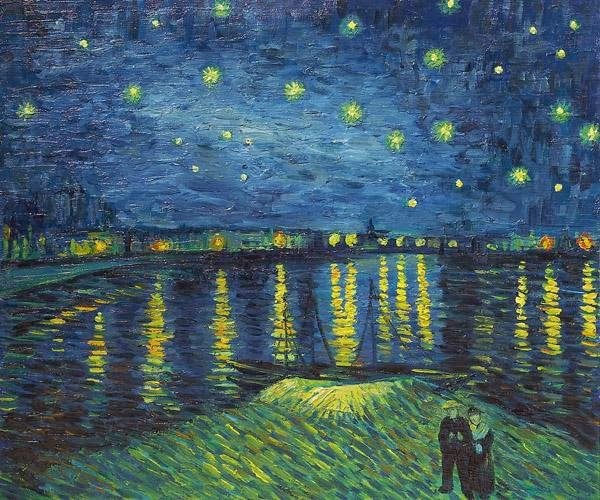Starry, Starry Night.
by Bill Kirton
 |
| Image from Wikipedia |
Parallel narratives, now
there’s a thing. I’ve probably mentioned before how important they are for
humour, crime fiction, irony and many other writing effects. They’re the sort of thing that’s behind many
of my short stories and plays. I keep a cutting from a newspaper or a note I’ve
made and it just sits there waiting. Then along comes something else which
completes it or contradicts it or energises it in some way or another and I
write about it. The co-existence of two layers forces an adjustment of
perspective, a re-evaluation of what’s being witnessed or experienced and sometimes
their power is even more stark in real life. For example, here’s an experience
I wrote about several years ago but which has stayed with me.
It was when my two
grandsons in Glasgow
And I think that’s the way
the writing imagination works. Set up a scenario – a man has just had an huge
violent row with his wife, or he’s heard the news that he’ll be the next CEO of
a major international company, or the doctor calls him in for the results of
his tests, or he’s standing in the empty rooms of the house he’s just sold
before emigrating to New Zealand, or his wife’s left him – and so on and so on.
And, at one of these extremes, he hears the song, or another song that triggers
the memory of his mother’s voice.
I know it’s not an
original thought. Noel Coward, after all, wrote ‘Extraordinary how potent cheap
music is’ (which, by the way, isn’t as well expressed as it might be; ending
the quip with ‘is’ weakens it. The sentence should be reconfigured
to climax with ‘cheap music’). There were also those powerful plays and films
by Dennis Potter which made fantastic use of many old standards. But in this
case, it was the juxtaposition of a moment of exquisite security and loving
with perhaps some future turmoil that set me thinking about how the narratives
of our lives are far more subtle and textured than many of the fictions we find
so entertaining.
It was a powerful
sensation, and it stayed with me over the next few days. I think I was planning
to use it in a story. But then, along came one of our archetypal British absurdities
– the Queen’s Speech. For those of you unfamiliar with the rituals, here’s a
brief summary.
Queen arrives, puts on
special robes and imperial crown, goes into the Lords and says ‘My Lords, pray
be seated". Then she nods at the Lord Great Chamberlain to fetch the House
of Commons. The LGC lifts his wand (seriously, his wand) to signal to Black Rod
(don’t ask) to go and get them. Off he trots (with a police inspector who says "Hats
off, Strangers!" to everyone they pass en route). As he gets near to the
doors to the Chamber of the Commons, they’re slammed in his face. He has to
knock three times with his staff (the Black Rod), and then they let him in.
 |
| Image from Wkipedia |
Oh, that’s enough. I can’t
go on. At least the MPs are wearing normal clothes. Everyone else is in
breeches, gold stuff, silly hats. It’s embarrassing. And as I was watching all
these (apparently) important people doing very silly things, the contrast of
this charade with the intensity and reality of personal experiences struck me
very forcibly. I know that many of my fellow-citizens find these ceremonies
admirable and lots of non-UK residents envy us the traditions and so on, but
how grotesque that people who make binding decisions about going to war in Iraq
and Afghanistan, who pontificate on the global financial crisis, Syria, and
Ukraine, and who are responsible for legislation on health, education, crime,
poverty and everything else which governs our lives have to behave like Widow
Twankey.
Some of reality’s fictions
really do stretch belief and that ‘starry, starry night’ drifting through the
darkness is in a different realm of truth from the pomp, circumstance and
ermine robes of our lords, masters (and a tiny sprinkling of ladies).
Comments
I'm a paid-up Republican, too, Kathleen. Along the bottom of my study window there's a wee banner 'END THE ROYAL FARCE'. It doesn't seem to be working.
I'd deal with a long queue of bankers and oligarchs long before my guillotine was free to tackle the royal family.
But the remembered song at a crucial event is not just a beautiful literary gambit which I've used myself but a potent image of memory and loss. Yes, what are the many levels of truth? I've been thinking a lot about that recently and it will be a staple of my next AE blog.